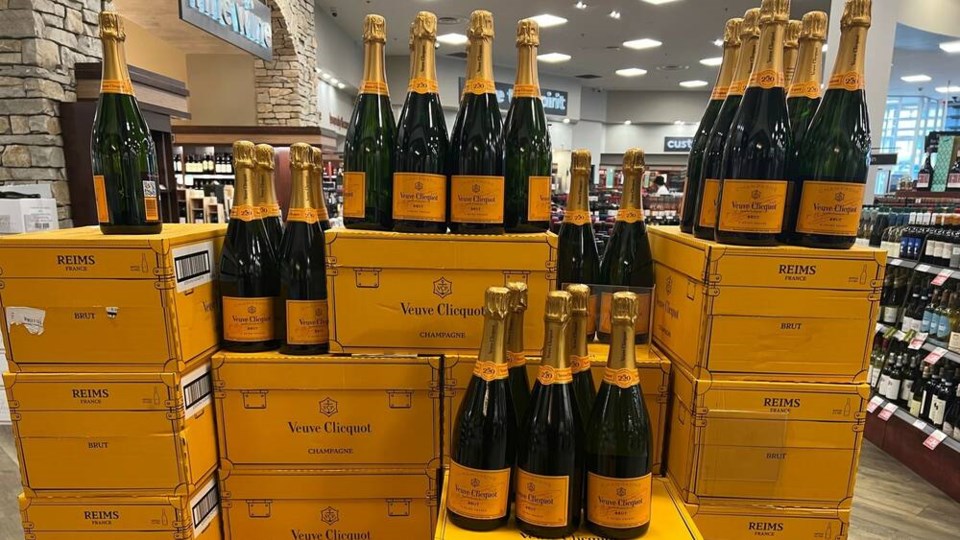Veuve Clicquot is one of the best-selling and most recognizable Champagnes in the world. Its signature orange/yellow label is instantaneously recognizable from afar. Veuve Clicquot Ponsardin is a Champagne house founded in 1772 by Philippe Clicquot. At that time, it was called Clicquot Champagnes. He retired in 1801 and left the business to his son Francois Clicquot, who had just married Barbe Nicole Ponsardin in 1798.
In 1805, Francois died of typhoid at the young age of 30. His brother, Philippe, wanted to liquidate the business, but Francois’ wife, Barbe Nicole, now a widow (or “Veuve”), decided to run the business. In the 1800s, most businesses were run by men and at the time of Francois’ death, Barbe Nicole was only 28 years of age, with a young daughter.
At that time, the Napoleonic Code prohibited women from working, voting, earning money, or entering schools and universities without the consent of their husbands or father. Widows were the only women in French society actually allowed to run their own businesses. Despite the incredible backlash, she proved to the male members of the family that she was capable of running the business by completing an apprenticeship course, and in 1810, she launched her own company called Veuve Clicquot Ponsardin. She became the first woman to own a Champagne house and the first female Champagne producer.
But her struggles were not over. At the time that Barbe Nicole took over the business, the vast majority of her Champagne was exported outside of France. But because of a conflict between France and Russia, naval blockades prevented her from shipping her wine abroad and Czar Alexander I of Russia banned French products. In the face of international conflict, she continued to try to maintain strong business ties abroad and sent Champagne to Russia anyway, convinced that peace would eventually prevail. She secretly snuck her Champagne through the blockades to Russia. Her intuition paid off as eventually Napoleon was defeated, the French monarchy was restored and her Champagnes were the first to be enjoyed by the Russians. The Russians appreciated her Champagne and her friendship during these difficult years so much so that Czar Alexander I’s brother declared that Veuve Clicquot Ponsardin Champagne would be the only kind he would drink. Madame Veuve Clicquot was a strong marketer and Veuve Clicquot Champagne began being associated with Russian royalty, celebrations and high society.
Madame Veuve Clicquot was not only a great business person but she spent a lot of time in the vineyards. She is responsible for the invention of the riddling table, which allowed Champagne to mature without being cloudy by having the dead yeast collect and then be removed at the tip of an upside-down bottle. Prior to this invention, Champagnes would have to be poured from one bottle to another in a time-consuming manner. The riddling table allowed Champagnes to be produced quickly for mass consumption.
What about its famous label? When Philippe Clicquot began producing Champagne, he sold Champagne wine with no labels on the bottles. Many wines and Champagnes at that time were marked with initials on the bottle or the seal around the cork. In 1814, Madame Clicquot designed one of the first labels used for Champagne. In the 1800s, most wines were very sweet and Madame Veuve Clicquot used the yellow/orange label to distinguish her Champagnes as a dry or “brut” style of Champagne. It worked, as her Champagnes continue to grab the attention of Champagne lovers around the world.
You can drink one of these historically significant Champagnes yourself and you can even see a picture of Madame Veuve Clicquot, Le Grande Dame of Champagne, on the cap of every bottle of Veuve Clicquot Champagne. You can purchase a bottle of Veuve Clicquot at any B.C. Liquor store for $82.99 per bottle. Until next time, happy drinking!
Tony Kwan is a lawyer by day, food and wine lover by night. Kwan is an epicurean who writes about wine, food and enjoying all that life has to offer.



